Earth Day Spotlight: Flying Carrot Farm
In celebration of Earth Day, our sustainability blogger Dan Moriarty sat down with Susan Murray of Flying Carrot Farm (formerly Apponagansett Farm) for an interview about her farm, climate change and local food overall.
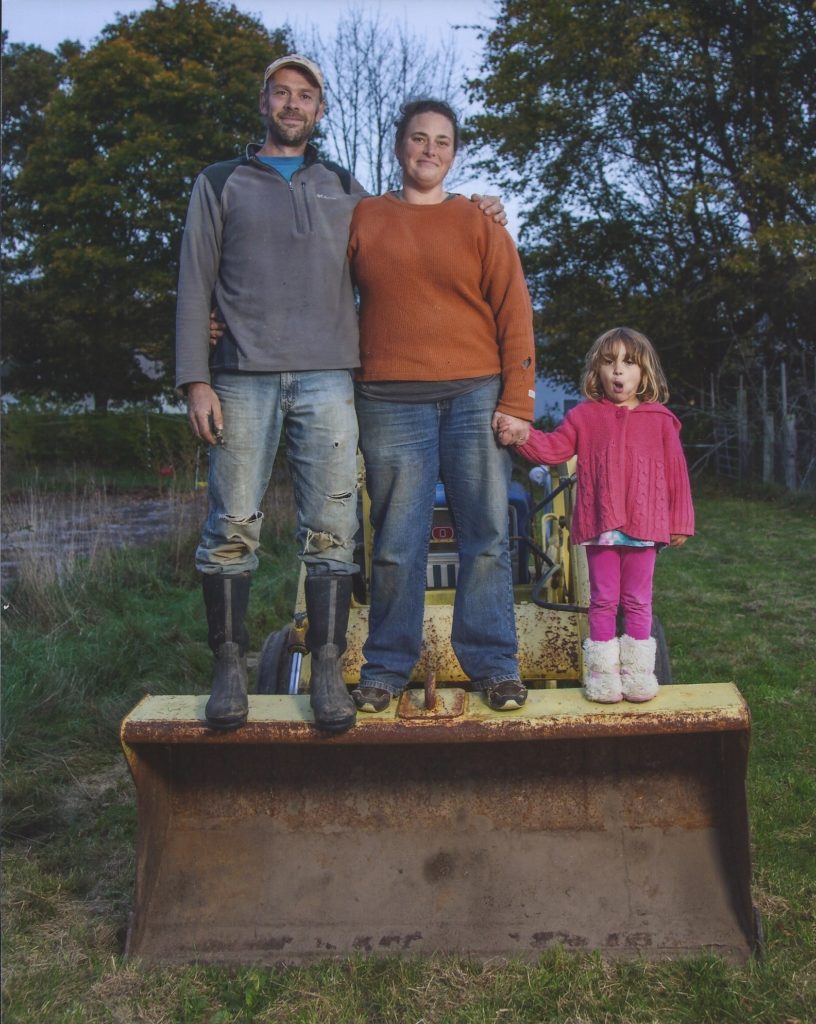
Tell us about Flying Carrot Farm.
My husband Tony and I started Apponagansett Farm in 2012 after moving back to my hometown, Dartmouth. We are chemical-free and only use sustainable farming methods. We focus on growing the most nutrient dense foods, providing great customer service & convenience, and making healthy food fun! This past winter we went through the EforAll business accelerator program and redesigned the farm in the sense we wanted to get back to basics: making healthy food more fun and convenient. With this new attitude we wanted a more memorable name and came up with Flying Carrot Farm! So now, this summer, we are launching with the same farm under this new name. With this shift comes our introduction of home delivery for our CSA and a renovated farm stand that is more accessible, open longer, and accepts more payment methods!
How did you get involved in farming?
My husband and I were originally bat biologists and met while studying bats in Malaysia. We eventually got married and decided we wanted to step out of academia and sort of had a “what are we gonna do!?” moment. During this moment we were getting into the local food movement, talking to farmers at farmers markets and reading into the realities of how messed up our industrial food system really is. Given this and the fact we both like to work with our hands and be outside, we decided to try out farming! We interned at a farm in Maryland and were hooked– we loved it! We did some farming in Mississippi, and then an apprenticeship at a farm in the Berkshires. Once we moved back to my Dartmouth, we felt we were ready to start our own farm and the rest is history.
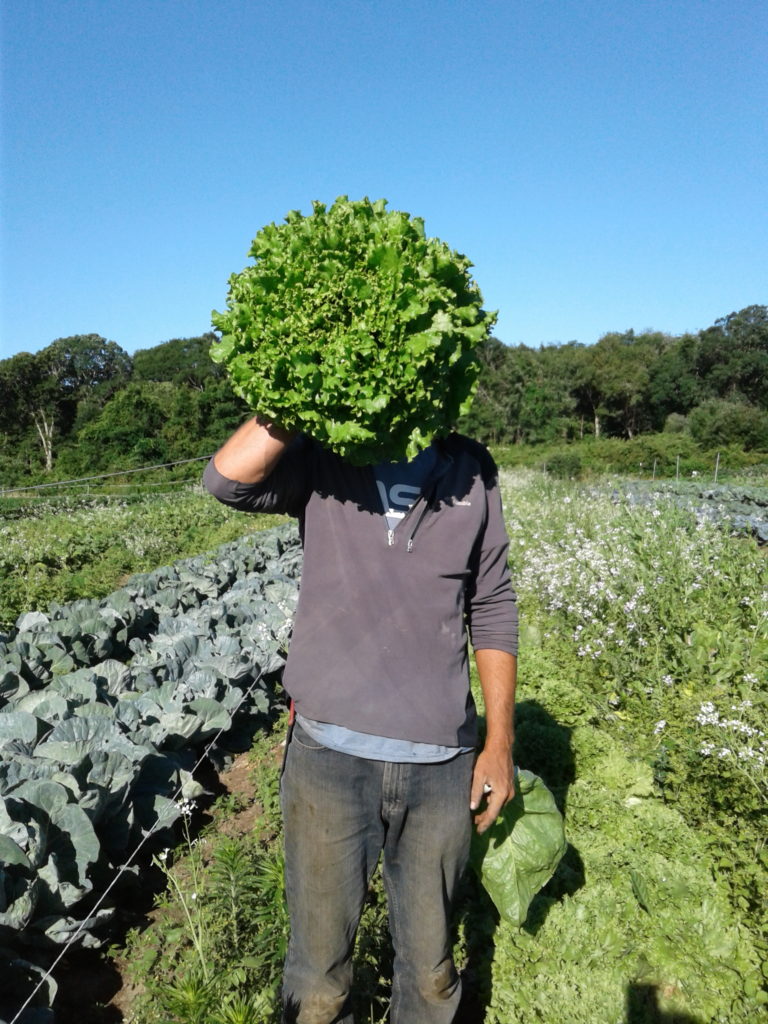
How is local agriculture vital to a community’s social capital and environmental health?
A lot of different ways, wow! First thing that jumps into my head is that having land devoted to agriculture is incredibly important to everyone in a local community. We focus on building soils, we rent all of our land and some of the land we rent was chemically farmed before us. We have been succeeding in bringing these soils back to life, we see earthworms and biodiversity returning. I believe strongly that building the soil rather than killing it is an investment in the next generation. With farms, soil is rebuilt and open green spaces are not developed. This helps our environmental health and ensures stability in our food system.
The recent romaine lettuce scares show how unstable the corporate food system is, and as these scares become more common, the food industry becomes more unstable. Local agriculture offers a secure and stable alternative to industrial food. With local agriculture, we have avenues to get safe and healthy food regardless of what is happening at the national level.
Another thing that comes to mind is how important it is for us farmers to invest in our communities. As often as possible, we buy our supplies, tools and materials from other small businesses, and due to the nature of our industry, we do that a lot. Farmers tend to be really entrenched in the local economy and appreciate all the people who invest in them, and want to invest back. We do subsidized CSAs and other community work in low income areas. Food security and equity is important to us too. We believe everyone regardless of their socioeconomic condition should have access to local food.
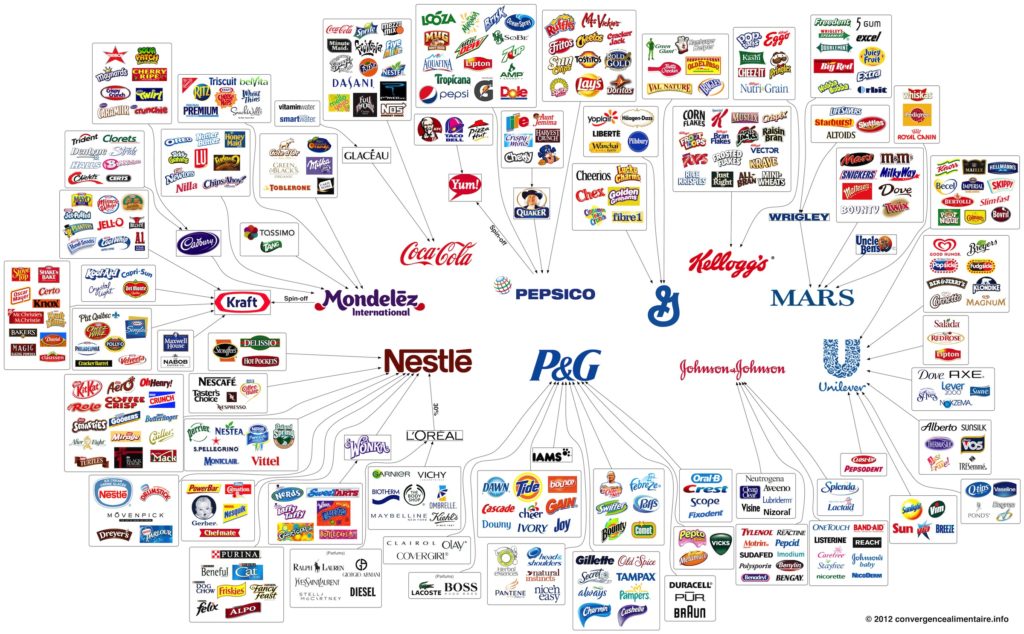
https://www.huffpost.com/entry/consumer-brands-owned-ten-companies-graphic_n_1458812
What advice do you have for millennials and retirees who are looking to take off their white collars and start farming?
Just do it! Seriously! Find a farm and apply. We’re always looking for unconventional people who want to change what they’re doing and get into farming. That’s what we did! I’m speaking from experience when I say just to dive in. That being said farming is a lot of hard work, but it is incredibly rewarding.
I feel like some people think farming is a lesser skilled job but it is not at all. I am more challenged on the farm than I ever was getting my PhD. It is about problem solving and putting all the pieces of a constantly moving puzzle together. You don’t just plant a tomato and pick it later. Anyone interested should look up their local farms and reach out asking how to get involved.
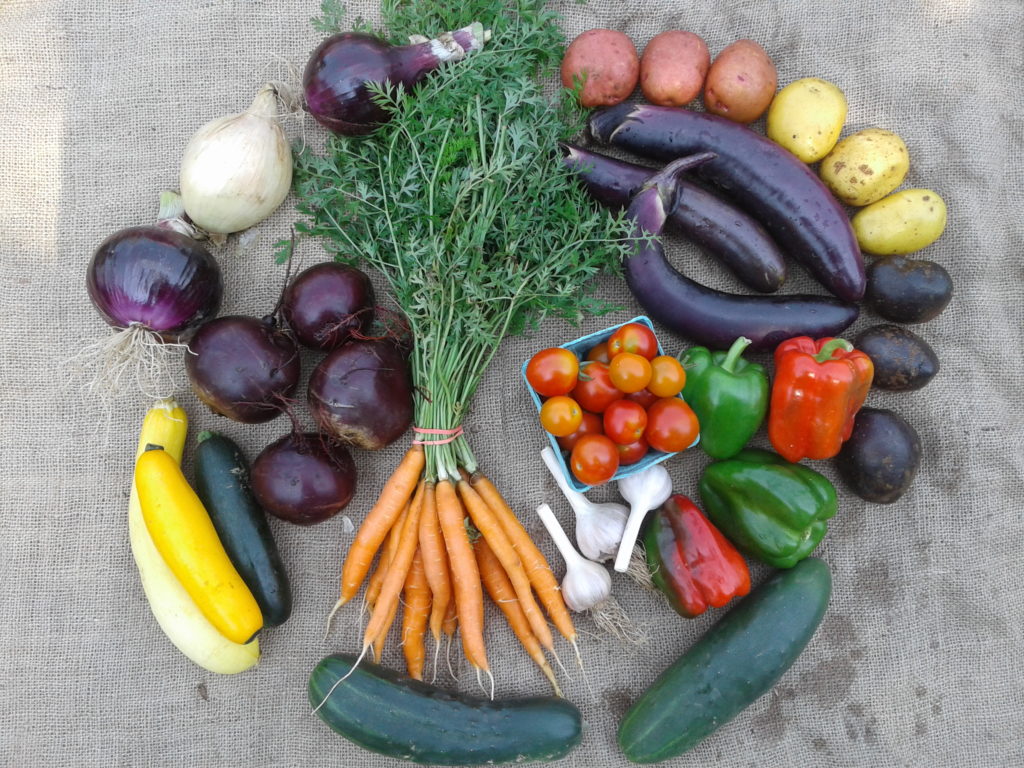
Now for the elephant in the room…or maybe in the field: climate change. What are your thoughts on climate change in regards to local agriculture?
Climate change is a huge issue. We just finished our 7th season and can already see trends in climate that are quite different from when I grew up here. Talking to older farmers who have been farming here their whole lives, we hear they are noticing big changes too. The summer droughts are overall getting hotter and longer, bringing with them increasing levels of diseases and pests that are typically found in places south of Massachusetts. This is our new reality as farmers, we’re having to deal with more severe drought conditions and new pressures/problems are appearing and moving in pretty quickly.
We are seeing climate change first hand and as an ecologist by training, I fully appreciate the severity of climate change and the seriousness of it within the sphere of agriculture. As a farmer, I gain even more of an appreciation for it as I am also on the ground trying to deal with the problems it causes. For chemical-free farms like our own, solutions to climate change can be hard to come by. We realize we can constantly work at being more sustainable in terms of both our operations and packaging, and we are.
We are at the cusp of a new industrial revolution in terms of digital technology that are set to disrupt industries across the board, including agriculture. What are your thoughts on the convergence of tech & farming?
So we’re looking into some smart-technologies, like sensors that can let you monitor your well levels from your phone. Currently however we do not use any smart-tech but we are forward looking. I don’t think this technology is going to “disrupt” farming, but it will offer new tools allowing small farmers to do a better job. It’s different in the Midwest on the huge farms where they have GPS mapping tech built into their tractors, but that’s large scale. In terms of small scale farms, we ourselves want to take advantage of technology when it helps our systems become more efficient and we plan to as the technologies mature.
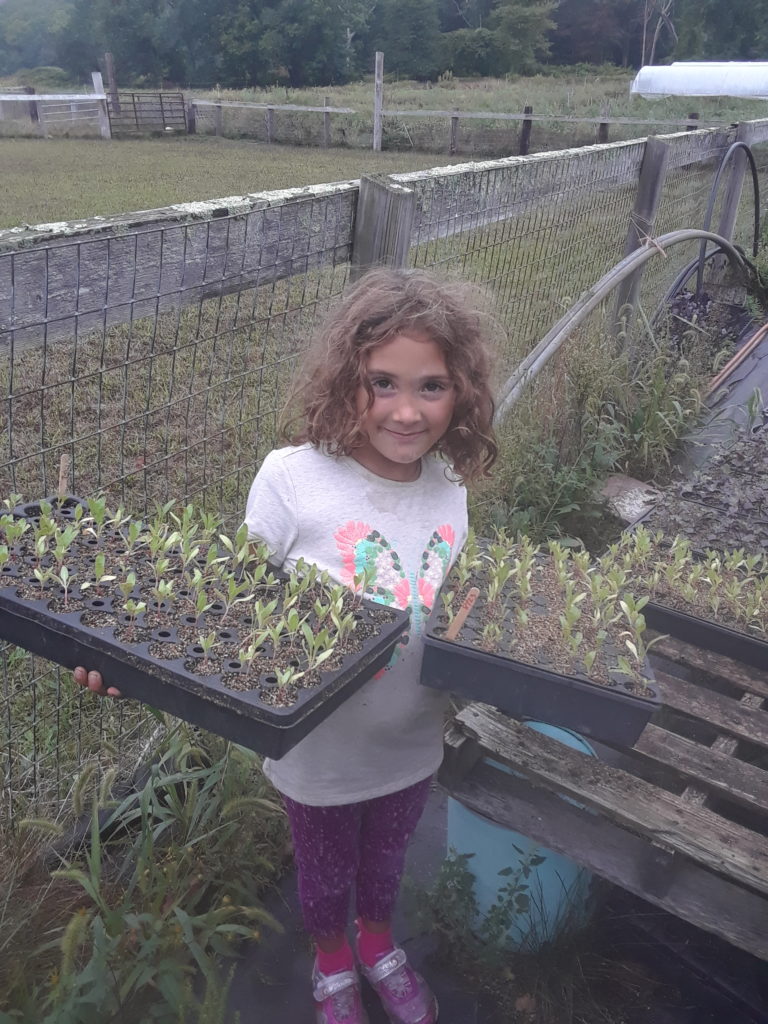
Finally, tell us how people can purchase your food and get involved with your farm.
We have summer CSA’s, you can opt in for either 10 or 20 weeks and choose between small, regular and large depending on how many mouths you’re feeding. With our CSA’s you can either pick up your food from the farm or starting this year, get it delivered to your front door!
We also have a farm stand at 707 Elm Street in Dartmouth which is open June-Thanksgiving. We also do the Dartmouth Farmers’ Market so you can catch us there 1-6pm every Friday from June through October. It’s located at St. Mary’s Church (789 Dartmouth Street). You can find us at the Attleboro Farmers’ Market Saturdays 9am-1pm June-October. Another way to support is is to shop where we sell wholesale which includes Farm & Coast Market, Lee’s Market, Little Moss, Down to Earth, The Baker, and Destination Soups.
If you want to get involved, we are hiring! We’re looking for field crew workers, a delivery person, and people to work at our farm stands and Farmers’ Markets! With the transition from Apponagansett Farm to Flying Carrot we are at a bit of an awkward point website wise. Our fully functioning website is: http://www.apponagansettfarm.com/ and that has our employment section with job descriptions and it is also where you can sign up for the CSA and pay online! Our website for Flying Carrot Farm should be up by May 1st.
- Outsourced Pt. 3: Collapse | The South Coast’s Textile Industry - October 4, 2023
- Need an Office for a Day? A Week? On-Demand? Look No Further than Coworking Spaces - September 12, 2023
- Outsourced Pt. 2: Boom & Bust | The South Coast’s Textile Industry - July 31, 2023
